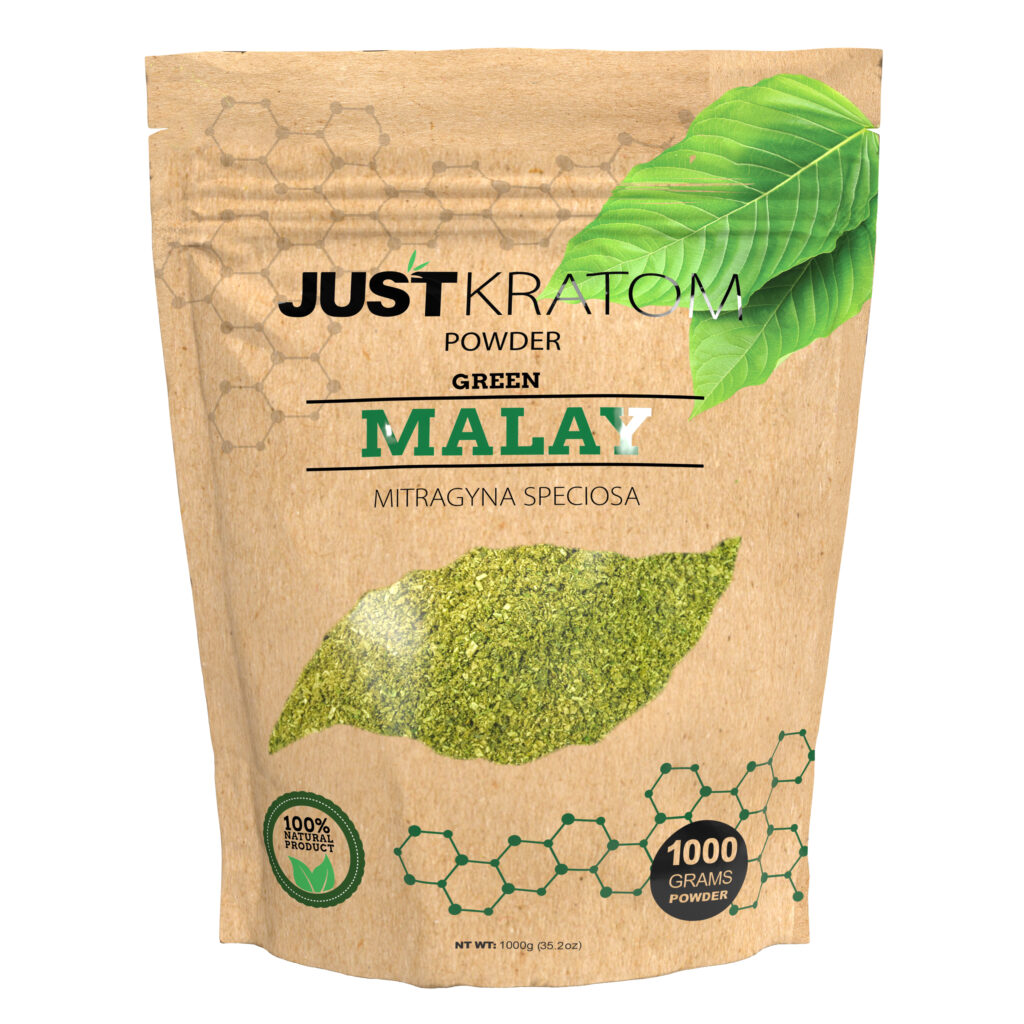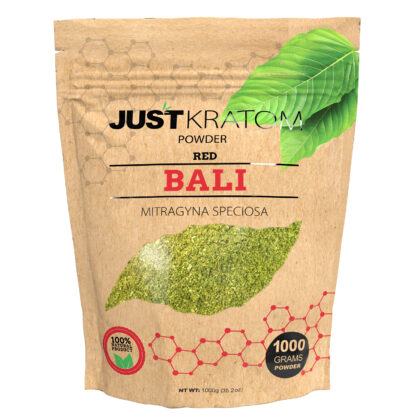Physiological Effects
Kratom, derived from the Mitragyna speciosa tree, contains alkaloids that interact with opioid receptors in the brain. This interaction can produce a range of physiological effects depending on the dose consumed. At lower doses, kratom can stimulate the central nervous system, leading to increased alertness, energy, and sociability. This effect is attributed to the activation of mu-opioid receptors, which are also involved in pain modulation.
Higher doses of kratom activate kappa-opioid receptors, causing effects similar to opioids like morphine. These include euphoria, sedation, and pain relief. However, at very high doses, kratom can lead to adverse effects such as nausea, vomiting, constipation, and respiratory depression. The potential for dependence and withdrawal symptoms also exists with prolonged kratom use.

Beyond opioid receptors, kratom alkaloids may also interact with other neurotransmitter systems, including serotonin and dopamine pathways. This complex interplay contributes to the diverse range of physiological effects observed with kratom consumption.
Mental and Emotional Effects
Understanding how kratom affects the brain and body requires delving into its interaction with various neurotransmitter systems. The alkaloids present in this botanical extract primarily target opioid receptors, influencing mood, energy levels, pain perception, and even respiratory function.
Mood Elevation and Euphoric Sensations
Kratom’s impact on mood is multifaceted and dose-dependent. Low doses can elevate mood, fostering feelings of well-being and sociability. This uplifting effect stems from the stimulation of mu-opioid receptors, which are also implicated in regulating pleasure and reward pathways in the brain.
As kratom dosage increases, effects shift towards euphoria, a state of intense happiness and heightened sensory experience. This euphoric sensation is attributed to the activation of kappa-opioid receptors, leading to a sense of contentment and relaxation.
Cognitive Enhancement Potential
The mental and emotional effects of kratom are diverse and heavily influenced by the dosage consumed. At lower doses, kratom can produce feelings of euphoria, increased sociability, and heightened energy. This stimulating effect is linked to the activation of mu-opioid receptors, which are involved in regulating mood and reward pathways in the brain.
As doses increase, the effects shift towards a more sedative state, characterized by relaxation and pain relief. This is attributed to the activation of kappa-opioid receptors, which also contribute to feelings of euphoria and contentment. However, excessive kratom consumption can lead to adverse mental and emotional effects, such as anxiety, paranoia, and hallucinations.
Kratom’s potential for cognitive enhancement is a subject of ongoing research. Some studies suggest that low doses may improve focus, attention, and cognitive performance. However, higher doses are more likely to impair cognitive function due to their sedative and psychoactive effects.

Anxiety and Insomnia Management
Anxiety and insomnia can be significantly impacted by kratom use. At lower doses, kratom might temporarily alleviate anxiety symptoms due to its stimulatory effects on the brain. However, as doses increase and kratom transitions into its opioid-like properties, it can actually worsen anxiety and contribute to panic attacks.
Insomnia is another concern associated with kratom use. While some individuals might experience initial sedation at higher doses, this effect is often followed by disrupted sleep patterns, nightmares, or difficulty staying asleep. The potential for kratom to cause dependence and withdrawal symptoms further exacerbates insomnia issues as the body adjusts to its absence.
Risk of Dependence and Addiction
Kratom’s interaction with opioid receptors in the brain can lead to a range of mental and emotional effects. At lower doses, it may produce feelings of euphoria, increased sociability, and heightened energy, stimulating mu-opioid receptors involved in reward pathways. As doses increase, effects shift towards sedation, relaxation, and pain relief, attributed to the activation of kappa-opioid receptors. However, excessive kratom consumption can induce adverse mental states like anxiety, paranoia, and hallucinations.
The risk of dependence and addiction with kratom is a serious concern. Prolonged use can lead to physical dependence, characterized by withdrawal symptoms such as nausea, vomiting, muscle aches, and irritability when kratom is discontinued. These withdrawal symptoms can be intense and debilitating, making it challenging for individuals to quit kratom without medical assistance.
The addictive potential of kratom stems from its ability to interact with the brain’s reward system, similar to opioids. Repeated use can lead to changes in brain chemistry and neurotransmitter function, reinforcing the desire to consume kratom and making it increasingly difficult to stop.
Tolerance Development
The mental and emotional effects of kratom are diverse and heavily influenced by the dosage consumed. At lower doses, kratom can produce feelings of euphoria, increased sociability, and heightened energy. This stimulating effect is linked to the activation of mu-opioid receptors, which are involved in regulating mood and reward pathways in the brain.
As doses increase, the effects shift towards a more sedative state, characterized by relaxation and pain relief. This is attributed to the activation of kappa-opioid receptors, which also contribute to feelings of euphoria and contentment. However, excessive kratom consumption can lead to adverse mental and emotional effects, such as anxiety, paranoia, and hallucinations.
Kratom’s potential for cognitive enhancement is a subject of ongoing research. Some studies suggest that low doses may improve focus, attention, and cognitive performance. However, higher doses are more likely to impair cognitive function due to their sedative and psychoactive effects.
Anxiety and insomnia can be significantly impacted by kratom use. At lower doses, kratom might temporarily alleviate anxiety symptoms due to its stimulatory effects on the brain. However, as doses increase and kratom transitions into its opioid-like properties, it can actually worsen anxiety and contribute to panic attacks.
Insomnia is another concern associated with kratom use. While some individuals might experience initial sedation at higher doses, this effect is often followed by disrupted sleep patterns, nightmares, or difficulty staying asleep. The potential for kratom to cause dependence and withdrawal symptoms further exacerbates insomnia issues as the body adjusts to its absence.
The risk of dependence and addiction with kratom is a serious concern. Prolonged use can lead to physical dependence, characterized by withdrawal symptoms such as nausea, vomiting, muscle aches, and irritability when kratom is discontinued. These withdrawal symptoms can be intense and debilitating, making it challenging for individuals to quit kratom without medical assistance.
The addictive potential of kratom stems from its ability to interact with the brain’s reward system, similar to opioids. Repeated use can lead to changes in brain chemistry and neurotransmitter function, reinforcing the desire to consume kratom and making it increasingly difficult to stop.
Withdrawal Symptoms
Kratom’s influence on mental and emotional states is complex and dose-dependent. At lower doses, it can induce feelings of euphoria, heightened sociability, and increased energy. This stimulating effect is linked to the activation of mu-opioid receptors, which are involved in regulating mood and reward pathways in the brain.
As doses increase, kratom’s effects shift towards sedation, relaxation, and pain relief. This is attributed to the activation of kappa-opioid receptors, contributing to feelings of contentment and euphoria. However, excessive kratom consumption can lead to adverse mental states such as anxiety, paranoia, and hallucinations.
Withdrawal from kratom can be challenging due to its potential for dependence. Physical dependence develops with prolonged use, resulting in withdrawal symptoms like nausea, vomiting, muscle aches, and irritability when kratom is discontinued. These symptoms can be intense and debilitating, often necessitating medical assistance for safe cessation.
Kratom’s ability to interact with the brain’s reward system, similar to opioids, contributes to its addictive potential. Repeated use can lead to changes in brain chemistry and neurotransmitter function, reinforcing the desire to consume kratom and making it difficult to stop.
Liver Damage Concerns
The mental and emotional effects of kratom are multifaceted and heavily influenced by the dosage consumed. At lower doses, kratom can produce feelings of euphoria, increased sociability, and heightened energy. This stimulating effect is linked to the activation of mu-opioid receptors, which are involved in regulating mood and reward pathways in the brain.
As doses increase, effects shift towards sedation, relaxation, and pain relief. This is attributed to the activation of kappa-opioid receptors, which also contribute to feelings of euphoria and contentment. However, excessive kratom consumption can lead to adverse mental states such as anxiety, paranoia, and hallucinations.
Kratom’s potential for cognitive enhancement is a subject of ongoing research. Some studies suggest that low doses may improve focus, attention, and cognitive performance. However, higher doses are more likely to impair cognitive function due to their sedative and psychoactive effects.
Anxiety and insomnia can be significantly impacted by kratom use. At lower doses, kratom might temporarily alleviate anxiety symptoms due to its stimulatory effects on the brain. However, as doses increase and kratom transitions into its opioid-like properties, it can actually worsen anxiety and contribute to panic attacks.
Insomnia is another concern associated with kratom use. While some individuals might experience initial sedation at higher doses, this effect is often followed by disrupted sleep patterns, nightmares, or difficulty staying asleep. The potential for kratom to cause dependence and withdrawal symptoms further exacerbates insomnia issues as the body adjusts to its absence.
The risk of liver damage from kratom use is a growing concern. While more research is needed to fully understand the extent of this risk, there have been reports of individuals experiencing liver injury after consuming kratom. The specific mechanisms by which kratom might cause liver damage are not entirely clear.
Possible contributing factors include oxidative stress, inflammation, and disruption of normal liver function. It’s important to note that most cases of kratom-related liver damage have been associated with high doses or prolonged use over extended periods. Individuals with pre-existing liver conditions may be at an increased risk of complications from kratom consumption.
As with any substance, moderation is key when it comes to kratom use. If you are considering using kratom, it’s crucial to talk to your doctor about potential risks and benefits, especially if you have any underlying health conditions or take medications that could interact with kratom.
Get the best Kratom Powder at Just Kratom
- Dermal Fillers For Marionette Lines: Restoring A Youthful Smile - July 1, 2025
- Where Can I Get Lip Filler Near Me - June 30, 2025
- Cosmelan Depigmentation Peel Vs Laser Skin Treatments: Which Is Better In The UK - June 30, 2025
